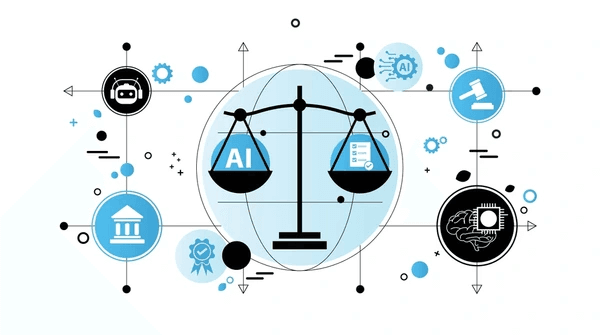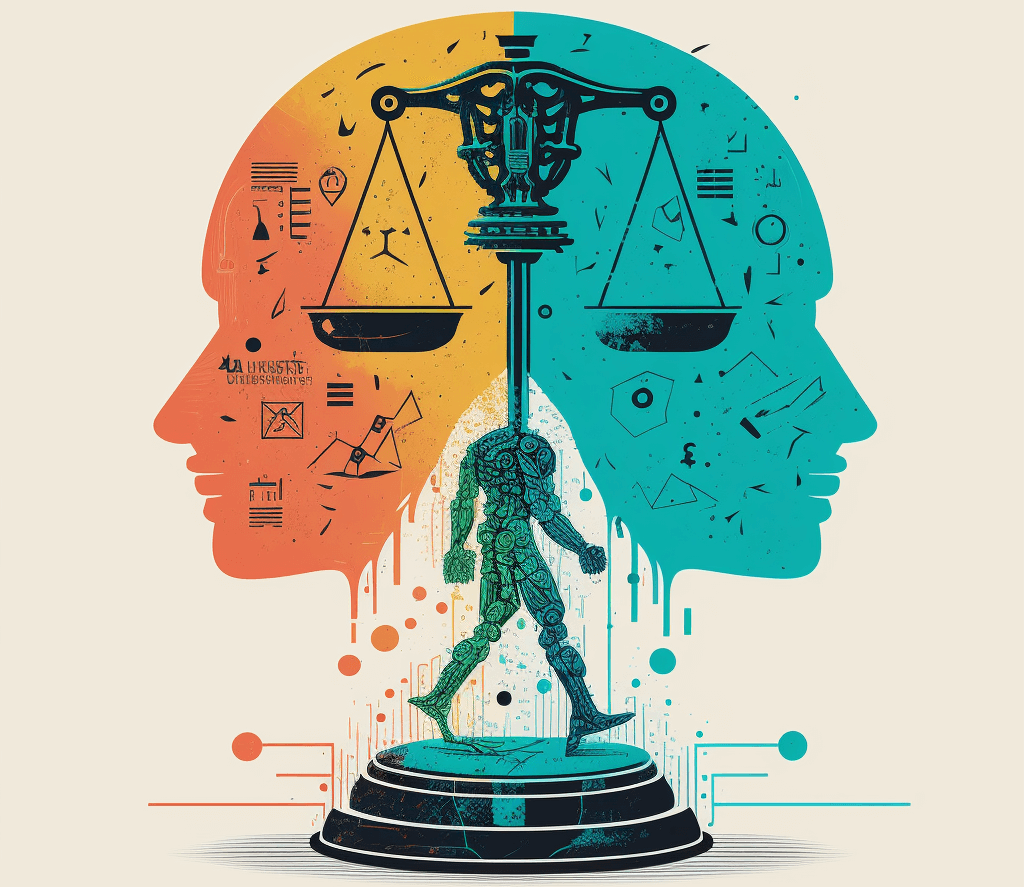Ethical AI: Balancing Innovation with Responsibility in Software Development
Introduction
Artificial Intelligence (AI) has emerged as a revolutionary force in software development, transforming industries and reshaping the way we interact with technology. However, as AI becomes more prevalent, ethical concerns surrounding its use have come to the forefront. From data privacy issues to algorithmic bias, the consequences of unethical AI deployment can be profound, affecting individuals and communities. Thus, balancing innovation with responsibility has never been more critical. This post explores the ethical dimensions of AI in software development, discussing how developers and organizations can navigate this complex landscape.

Defining Ethical AI: What Does It Mean?
Ethical AI refers to the practice of developing and deploying artificial intelligence systems that adhere to fundamental ethical principles, such as fairness, accountability, and transparency. It involves designing AI solutions that respect user privacy, avoid discrimination, and ensure that decision-making processes are just and explainable. In essence, ethical AI seeks to align technology with human values, minimizing harm while maximizing benefits.
A key component of ethical AI is data privacy. With AI systems heavily relying on vast amounts of data, ensuring that personal information is handled responsibly is essential. Another aspect is algorithmic bias, where AI models unintentionally perpetuate biases present in training data. Finally, transparency in AI systems allows stakeholders to understand how decisions are made, fostering trust and accountability.
Ethical AI in Practice: Challenges and Considerations
Data Privacy and Consent
AI systems often require large datasets to function effectively. However, the collection, storage, and use of personal data can raise significant ethical concerns. Developers must ensure that data is anonymized, used with explicit consent, and stored securely to protect users' privacy.
Example: In healthcare, AI can analyze patient data to predict disease outcomes. However, without robust privacy measures, sensitive health information could be exposed or misused.
Bias and Fairness
AI models learn from historical data, which can contain biases reflecting societal inequalities. If not addressed, these biases can lead to unfair outcomes in applications like hiring algorithms, lending decisions, or law enforcement tools.
Statistics: A 2019 study by MIT Media Lab found that facial recognition algorithms were up to 34% less accurate for darker-skinned females compared to lighter-skinned males. Such disparities highlight the urgent need for fairness in AI systems.
Transparency and Explainability
Many AI models, especially deep learning algorithms, function as "black boxes" that offer little insight into how they make decisions. This lack of transparency can lead to mistrust and difficulty in identifying when and why AI systems make mistakes.
Real-world application: In finance, lack of explainability in AI-based credit scoring systems can prevent users from understanding why they were denied a loan, making it challenging to dispute incorrect assessments.
Accountability in Autonomous Systems
As AI becomes more autonomous, determining who is accountable for its actions becomes more complex. For instance, if an autonomous vehicle causes an accident, is the blame on the developer, the manufacturer, or the AI itself?
Addressing these ethical issues requires a multi-faceted approach that combines technological innovation with policy-making, stakeholder engagement, and rigorous testing.
The Advantages and Challenges of Ethical AI
Ethical AI is not only a moral imperative but also a strategic advantage. It fosters trust among users and stakeholders, ensuring that AI solutions are accepted and valued. Companies that prioritize ethical AI are more likely to build loyal customer bases, attract top talent, and comply with regulatory standards.
Advantages:
-
Enhanced Trust and Reputation: Ethical AI practices can improve the reputation of an organization, making it more appealing to customers, investors, and partners.
-
Long-term Compliance: With evolving regulations like GDPR and CCPA, companies that adhere to ethical standards early on can avoid legal risks and penalties.
-
Innovation with Responsibility: A commitment to ethical AI encourages innovation that prioritizes human welfare, leading to sustainable and impactful technological advancements.
Challenges
-
Increased Development Costs: Integrating ethical considerations often requires additional resources, such as time, expertise, and technology investments.
-
Potential Trade-offs: Striving for fairness and transparency might reduce model performance or necessitate the exclusion of valuable data, leading to less accurate outcomes in some cases.

Practical Tips for Building Ethical AI Systems
-
Implement Bias Detection and Mitigation: Use techniques such as re-sampling, re-weighting, and adversarial debiasing to identify and reduce biases in training data and algorithms.
-
Adopt Explainable AI Models: Opt for algorithms that provide insights into their decision-making processes. Techniques like LIME (Local Interpretable Model-agnostic Explanations) can help make even complex models more understandable.
-
Develop Robust Data Governance Policies: Establish clear policies for data collection, storage, and usage that prioritize privacy and consent.
-
Conduct Ethical Reviews and Audits: Regularly audit AI systems for ethical compliance, engaging interdisciplinary teams, including ethicists, legal experts, and social scientists.
-
Create Transparency Reports: Publish transparency reports that detail how AI systems are built, the data used, and the measures taken to ensure fairness and accountability.
Conclusion
As AI continues to evolve, the question is not whether to prioritize ethics but how to effectively integrate it into AI development. Ethical AI is a shared responsibility that requires collaboration between developers, policymakers, and the public. By proactively addressing ethical concerns, we can harness AI's potential to drive positive change while safeguarding fundamental human values. Let’s innovate responsibly, ensuring that AI serves as a tool for good—today and in the future.
Encourage your organization to embrace ethical AI, and be a part of shaping a future where technology works in harmony with humanity.